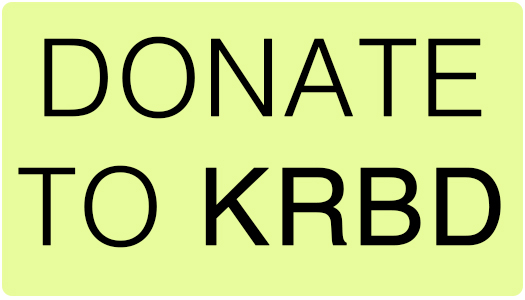While the budget was the main action item for Wednesday’s Ketchikan School Board meeting, teacher contract negotiations again were the main topic of public comment.
Parents and teachers urged the Ketchikan School Board to compromise with Ketchikan Education Association and resolve the ongoing contentious contract negotiations.
Liz Jones told the board she has two children at Houghtaling Elementary School, and is a member of the Parent-Teacher Association. She said she’s saddened by the state of negotiations.
“As a school district, you have an amazing group of teachers and support staff,” she said. “If this is how you’re treating your teachers now, what kind of disrespect and contempt – and I realize that’s a really strong word, but I feel fitting given the level the negotiations have stooped to – will you be giving your support staff, paras, custodians and administrative assistants when their contracts are up for negotiations next? If you’re able to strongarm and bully the teachers now, do you think it will make negotiations next year go more smoothly for the other bargaining units?”
Jones said teachers want open negotiations, as do some board members. She questioned what the board wants to hide from the public. She also questioned the perspective of Board President Trevor Shaw, who was homeschooled.
Shaw noted that he did take some classes at Ketchikan High School through the district’s FastTrack program.
Dave Smith is a Revilla High School teacher who also is a Ketchikan High School graduate. He said his parents were great people, but most of his day was spent with teachers in the schools. Smith said the impact of a good, quality teacher needs to be considered.
He encouraged the entire board to pay attention to what’s happening at the bargaining table.
“It’s my understanding that the four people negotiating on behalf of this community, none of them have attended and certainly never raised any students in this district,” he said. “It’s really up to you folks to protect and maintain the sense of family that we have with our educators.”
Leif Sivertsen also is a Kayhi grad. He and his wife both teach locally, and he said they don’t want to move away. If they did, though, he said they could make $30,000 more a year in Washington, and spend about $10,000 less because of the lower cost of living.
Sivertsen said kids are Ketchikan’s most important product, and that’s not an area the community should skimp on.
Shaw thanked all the speakers for their passion. He agreed that everyone was there for the kids, including the board.
Later, during his report, Superintendent Robert Boyle said there will be 12 to 20 staff members leaving the district this year. He said most of those are through retirement or because they need to relocate for a spouse’s job.
“We’re fortunate, even though there are 500 openings across the state of Alaska, we continue to get a steady stream of applicants for the positions that we have open,” he said. “The structure within our contract is attractive to people.”
During discussion of the budget later in the meeting, board members were concerned about how contract negotiations could affect the Fiscal Year 2019 spending plan.
Several members wanted to hold back on some recommended teaching positions so the district would have more funds in reserves if needed.
Board Member Diane Gubatayao disagreed. She suggests that if negotiations lead to that, perhaps the borough would contribute more.
“Being that we are well funded below the cap. As I understand, we’re about 28 percent under the cap, give or take? That’s a considerable amount,” she said.
The “cap,” is the highest discretionary local contribution level allowed by state law. The Ketchikan Gateway Borough is expected to contribute a total of about $8.5 million. Of that, about $3.8 million is discretionary.
Board President Trevor Shaw said he hopes the two sides can find common ground.
“We’ve got to figure out how we’re going to meet somewhere in the middle about what are we going to do, not for the next year but for the next three years,” he said. “The last thing I want to do is approve a contract where two years down the road we come up short in what we have told the teachers we’re going to pay them and then we are issuing pink slips.”
The board eventually adopted the approximately $35 million budget with a few changes. They cut the high school world language teacher from full-time to half-time, and then added funding for a half-time Tribal Scholars position.
But, during the second public comment period at the end of the meeting, Kayhi Principal Bob Marshall and others pushed back on cutting the world language job.
Marshall said that decision means the high school won’t be able to offer a Japanese class. He reminded board members that they told the high school to prepare for that class.
“We prepared and we prepared and we told students at our school and at Schoenbar that we would have a Japanese program. I’m sad that apparently I told them that in error,” he said. “It’s very disappointing. We are not going to be able to have a Japanese course with a half-time FTE.”
Shaw later moved to reconsider the budget in order to change that back to full-time. He said the board made a commitment, and needs to honor it.
That decision passed, but with members Glen Thompson, Lana Boler and Kim Hodne voting against the amended budget. Thompson argued that the second world language course at the high school doesn’t need to be Japanese, and a teacher could split time teaching another language along with other classes.
Restoring the world language teacher to full time means an extra $45,000 added to the district’s local funding request.
During board comments, several members addressed ongoing negotiations. Boler said she believes the board’s sole focus is on students, “and it’s unfortunate that people don’t believe that.”
The board was to have an executive session to discuss negotiations, but the meeting went too long and members voted against that closed-door discussion.
The district and KEA will reconvene negotiations May 7 or 8, Shaw said at the close of the five-hour meeting.








